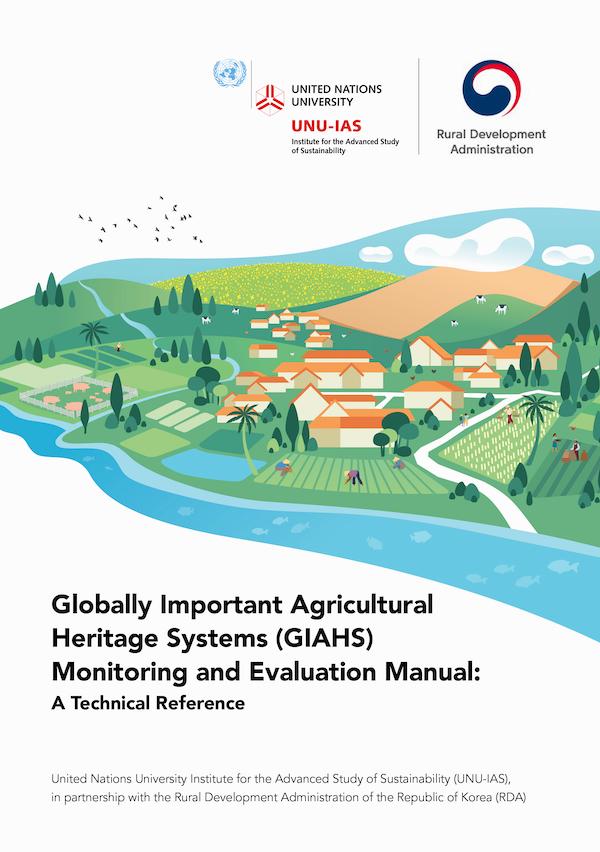A new publication provides a guide to designing and implementing a monitoring and evaluation (M&E) process for Globally Important Agricultural Heritage Systems. Published by UNU-IAS and the Rural Development Administration (RDA) of the Republic of Korea, the manual aims to reinforce the importance and usefulness of an M&E process as an integral part of conservation efforts, as defined by the GIAHS Action Plan; and support the management and governance of GIAHS through specific steps to monitor and evaluate activities performed under the Action Plan. The publication Globally Important Agricultural Heritage Systems (GIAHS) Monitoring and Evaluation Manual: A Technical Reference is intended for current and potential GIAHS administrators, but also serves as a comprehensive reference source for a broader audience, including GIAHS stakeholders, researchers and students, and others interested in promoting sustainable development of agricultural heritage systems.
GIAHS are living, evolving systems of human communities in an intricate relationship with their territory, cultural or agricultural landscape, or biophysical and wider social environment. Since 2005, FAO has designated 62 GIAHS regions in 22 countries, including five in Korea and 11 in Japan. However, the GIAHS programme currently lacks global guidance on M&E, resulting in each country or site establishing its own M&E standards and processes.
To consolidate knowledge, UNU-IAS and the Rural Development Administration (RDA) of the Republic of Korea have conducted a joint research project, Introduction of Technologies on Characteristic Analysis and Conservation Management in Agricultural Heritage Systems. The manual is an output of this partnership, produced in consultations with stakeholders from the 16 GIAHS regions across Korea and Japan.




